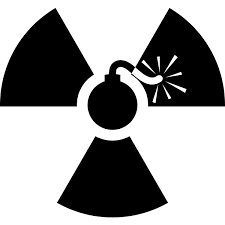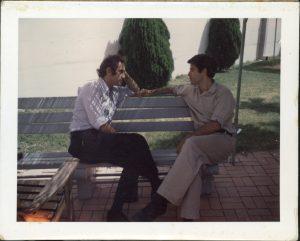 79 years ago, the United States unleashed the most powerful weapon known to humankind. The devastation of ‘Little Boy,’ a uranium bomb rained down on Hiroshima killing an estimated 140,000 people, mostly civilians. Three days later the United States dropped the second bomb ‘Fat Man’ made of plutonium which was ten times more powerful and took the lives of 70,000 people. The U.S. War Department wanted to test the different design to see which was more effective. Part of the lower casualties may have been a result of evacuations of Nagasaki after the U.S. dropped pamphlets throughout Japan stating:
79 years ago, the United States unleashed the most powerful weapon known to humankind. The devastation of ‘Little Boy,’ a uranium bomb rained down on Hiroshima killing an estimated 140,000 people, mostly civilians. Three days later the United States dropped the second bomb ‘Fat Man’ made of plutonium which was ten times more powerful and took the lives of 70,000 people. The U.S. War Department wanted to test the different design to see which was more effective. Part of the lower casualties may have been a result of evacuations of Nagasaki after the U.S. dropped pamphlets throughout Japan stating:
 There were many Conscientious Objectors to World War II worldwide. One was Franz Jagerstatter whose father was killed in World War I. Franz was executed on August 9, 1943 in Germany after refusing to kill for the Nazis. There were also many Conscientious Objectors who were imprisoned in the United States. One was James Otsuka who was previously interned in a War Relocation Center. Prior to being sentenced to three years in prison he stated:
There were many Conscientious Objectors to World War II worldwide. One was Franz Jagerstatter whose father was killed in World War I. Franz was executed on August 9, 1943 in Germany after refusing to kill for the Nazis. There were also many Conscientious Objectors who were imprisoned in the United States. One was James Otsuka who was previously interned in a War Relocation Center. Prior to being sentenced to three years in prison he stated:
Upon their release from prisons, many continued their resistance to war especially with their refusal to pay for war and the preparations for war. The advent of the nuclear age had a cascading effect upon peace movements and opposition to future wars. NWTRCC often mentions in our introduction to war tax refusal (WTR 101) that the modern WTR movement was grounded in resistance to World War II. The personal tales of those who took risks inspired others.

Photo of Daniel Ellsberg and Randy Kehler from the Ellsberg Archive
The story of Franz Jagertatter as told in Solitary Witness influenced Daniel Ellsberg who released the Pentagon Papers which helped bring the Vietnam War to a close. He was also deeply influenced by war tax resister, Randy Kehler. Daniel had heard Randy speak prior to going to jail as a Conscientious Objector to the Vietnam War and in hearing Randy’s personal tale felt compelled to share with the nation and the world the preparations for war that the U.S. was engaged in.

Hands Up for Peace mural in St. Louis, Photo by Paul Sableman, CC on Flickr
August 9th also marks the killing of Michael Brown Jr. which happened ten years ago. His body lay in the streets of Ferguson, Missouri for over four hours while police from various municipalities tried to contain the public outrage with trained dogs, reminiscent of the civil rights era. Soon thereafter the streets of Ferguson were occupied by militarized weapons intended for war zones. U.S. militarism was witnessed worldwide in this movement for justice.
Many learned of the 1033 and 1122 programs that allow the overflow of military equipment to flow into police departments throughout the U.S. We know that our movements are interconnected and that peace can only occur when it is rooted in justice for all. We also know that we do not do this work alone. We are not solitary witnesses; our actions influence others.
 In the recent Washington Post obituary for Randy Kehler he reminded us:
In the recent Washington Post obituary for Randy Kehler he reminded us:
“Don’t ever, ever assume that anything you do, particularly if it’s an act of conscience, won’t make a difference.”
Post by Chrissy Kirchhoefer

Thanks Chrissy, for this thought-provoking piece. I appreciated these meaningful personal connections, of which I did not know. When working with college students, I often shared the non-violence thread I experienced after reading MLK’s Strength to Love, with connections flowing back to Gandhi, then Tolstoy, then Garrison&Thoreau. May each of us be mindful and strive that our actions day by day be beautiful prayers.
Alan,
Thanks for your kind comments! I appreciated that it was mentioned in Randy Kehler’s obiturary how Daniel Ellsberg was really impressed by Randy’s personalism and good hearted nature that really moved him. May courage and kindness be mixed in with mindfulness to help guide our collective actions.